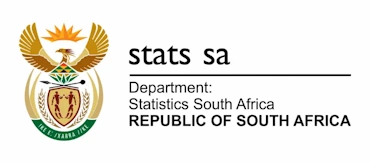Media Release 23 November 2016
GHS Series Volume VIII: Water and Sanitation, in-depth analysis of the General
Household Survey 2002–2015 and Community Survey 2016 data
Statistics South Africa today released the Water and Sanitation: an in-depth analysis of the GeneralHousehold Survey, 2005-2015 and Community Survey 2016 data report, according to the report,
nationally, 92,5% of households had access to improved drinking water sources. Western Cape(99,4%), Free State (99,3%), Northern Cape (99,1%) and Gauteng (98,6%) reported almost universal
access to improved drinking water sources. Although Eastern Cape had the lowest percentages of households (75,7%) with access to improved drinking water sources, the province reported the largest
percentage points increase from 2002, when 60,9% of households reported accessing improved drinking water sources.
The odds of households in Eastern Cape (3,227), KwaZulu-Natal (2,713), Gauteng (2,748), North West(1,317), Mpumalanga (1,567) and Limpopo (1,400) to access unimproved drinking water sources were greater than the odds of households in Western Cape. However, the difference was insignificant for the latter three provinces. The odds of households living in rural areas, non-metro, traditional and informal dwellings were respectively 2,664, 3,549, 2,495 and 1,594 times more than the odds of households in urban areas, metros and formal dwellings to access unimproved drinking water sources. Households
living in OR Tambo (49%), Alfred Nzo (46%), Zululand (24%), Sisonke (23%) and UMkhanyakude (20%) still relied on ground water as a source of drinking water.
During 2009, 88% of households lived less than 200 metres away from the outside-yard toilet facility, whereas in 2015 the percentage increased to 94%. Nationally, the percentage of households with access to municipal water increased from 84% to 86%, but the proportion of households who reported interruptions over the 12 months before the survey increased from 23,1% to 25,4% between 2009 and 2015.
Nationally, the percentage of households with access to improved sanitation facilities increased from 62,3% in 2002 to 80% in 2015. Many households in Western Cape (93,3%) and Gauteng (91%) had access to improved sanitation facilities, while about half those in Limpopo (54%) and just below twothirds of those in Mpumalanga (65,8%) had access to improved sanitation facilities. It is notable that access to improved sanitation facilities grew most rapidly in Eastern Cape (+48,2 percentage points) between 2002 and 2015. The metros with the highest percentage of households with access to improved sanitation facilities were the City of Johannesburg (96,9%), Nelson Mandela Bay (94,6%) and the City of Cape Town (91,8%). The metros with the lowest percentages of households with access to improved sanitation facilities were the City of Tshwane (82%) and eThekwini (83,5%). The odds of households in the other eight provinces to have access to unimproved sanitation facilities were greater than the odds of households in Western Cape.
Nationally, 1,2% of households reported using the bucket toilet system. Western Cape (4%) recorded the highest percentage of households using the bucket toilet system followed by Free State (2,7%) and Northern Cape (2,4%). As many as 6,8% of households living in informal dwellings reported using the bucket toilet system. Using either CS 2016 or GHS 2015 data, households who lived in Buffalo City, eThekwini and the City of Tshwane reported lower percentages as far as the use of the bucket toilet system was concerned. Nationally, 4% of households practised open defecation, and these percentages were even higher for households living in traditional dwellings (12,1%) and informal dwellings (10,3%). The highest percentages of households who practised open defecation was reported in Buffalo City.
Issued by Statistics South Africa
Ms Kefiloe Masiteng
Deputy Director General: Population & Social Statistics
Tel: (012) 310 4663
Email: kefiloem@statssa.gov.za
Dr Isabelle Schmidt
Chief Director: Social Statistics
Tel: (012) 337 6379
Cell: 082 884 4281
Email:isabelsc@statssa.gov.za
Media Enquiries contact:
Ms Lesedi Dibakwane
Tel: (012) 310 8578
Cell: 082 805 7088
Email: lesedid@statssa.gov.za

